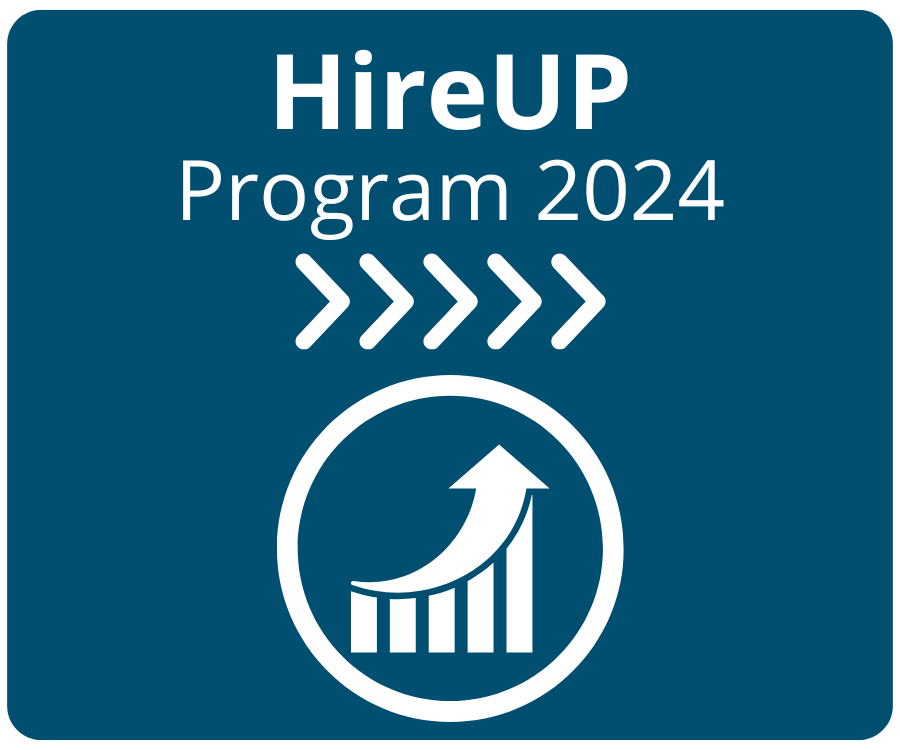Why should I apply for financial aid?
Financial aid is made available to assist students and families in meeting the costs of a post secondary education. If you believe you will need assistance in meeting those costs, you should apply for financial aid. You can apply online at www.fafsa.ed.gov,
If I am not a U.S. Citizen, am I still eligible to apply for Financial Aid?
To be eligible for both federal and state aid, a student must be a U.S. citizen or an eligible non citizen. For financial aid purpose, an eligible non citizen is one of the following:
- a U.S. permanent resident who has an Alien Registration Receipt Card (I-551)
- a conditional permanent resident (I-551C); or
- a non citizen with an Arrival-Departure record (I-94) from the U.S. Citizenship and Immigration Services with one of the following designations—“Refugee,” “Asylum Granted,” “Parole,” or “Cuban-Haitian Entrant.”
Students who are residing in the United States with an F-1 or F-2 student visa or a G series visa are not eligible for federal or state financial aid.
I probably don’t qualify for aid because of family finances. Should I submit a FAFSA anyway?
Yes. Even though you think you may not qualify for aid, you should at least complete the FAFSA. The application is free and the college uses it to assess your eligibility. You can apply online at www.fafsa.ed.gov
If I don’t qualify for need-based aid, what options are available?
If you are not eligible for need-based financial aid, many options are still available. One option is to look for merit-based scholarships, which consider academic or other talents.
My neighbor got more grants than I did. Why?
A student’s eligibility for financial aid is based on various factors, including the size of your family, how many members of the family are in college, how close your parents are to retirement, and, of course, family resources (income and assets). Even though your family’s circumstances may appear to be very similar to your neighbor’s, there may be substantial differences in the components used to calculate financial eligibility. One of the most common differences is meeting deadlines. Missing a deadline could substantially impact the amount of grant aid for which you may be eligible.
How do I get financial aid?
To receive financial aid you must apply for it. The biggest mistake students make is not to apply because they don’t think they’ll qualify. To apply for federal, state and college financial aid programs, you need to complete the FAFSA and for the Cal Grant program you must submit a GPA verification form by September 2 or March 2. You may also be requested to submit additional documents such as tax returns to complete your financial aid file. Please respond immediately to all requests made by the financial aid office.
Do I need to complete my income tax return before I complete the FAFSA?
While it is recommended that you complete your tax return prior to filling out your FAFSA, it is not essential. You can fill out the FAFSA using estimated information from your W-2. Any large discrepancies between your FAFSA and your tax return may have a large impact on any preliminary financial aid award you receive.
I filled out the FAFSA, how do I find out the results?
You can fill out and submit your application through FAFSA online at www.fafsa.ed.gov. After submitting your FAFSA, you will receive a Student Aid Report (SAR). The SAR will list all of the information you put on the FAFSA This information also is forwarded to the colleges you indicated to receive copies of the information. Once the colleges receive the information and verify it with any additional documents you submitted at their request, they will notify of your aid eligibility or send you a letter requesting additional information.
I completed the FAFSA over a month ago, but I haven’t received anything back. What should I do?
If you haven’t received a Student Aid Report, you can call the federal processor at 1-800-433-3243. You will need to provide your Social Security number and date of birth as verification.
When am I considered an independent student?
In order to be considered as an independent student for financial aid p You can apply online aturposes, you must meet one of the following six criteria:
- Be over 24;
- Be a veteran of the U.S. Armed Forces;
- Be enrolled in a graduate or professional degree program;
- Be married;
- Have legal dependents other than a spouse;
- Be an orphan or ward of the court, or have been a ward of the court until age 18.
I don’t meet any of the criteria for an independent student, but my parents don’t support me. What can I do?
If you don’t meet one of the federal criteria to be an independent student, you will have to supply your parents’ information on the financial aid application. If extenuating family circumstances prevent you from supplying your parents’ information, contact the financial aid office to discuss your situation.
My parents are separated or divorced. Which parent is responsible for filling out the FAFSA?
If your parents are separated or divorced, the custodial parent is responsible for filling out the FAFSA. The custodial parent is the parent with whom you lived the most during the past 12 months. Note that this is not necessarily the same as the parent who has legal custody. If you did not live with one parent more than the other, the parent who provided you with the most financial support should fill out the FAFSA. This is probably the parent who claimed you as a dependent on their tax return. If you have not received any support from either parent during the past 12 months, use the most recent calendar year for which you received some support from a parent or lived with either parent. Note, however, that any child support and/or alimony received from the non-custodial parent must be included on the FAFSA.
My parents are divorced and I am currently living with my father. He remarried New Year’s Day 2017. Do I have to report my stepmother’s 2015 income?
Yes, even though your father and stepmother were not married in 2013. When we complete Step Four of the FAFSA, the term “parents” includes your stepmother.
My custodial parent remarried and signed a prenuptial agreement that absolves the step-parent from financial responsibility for my education. Why does my step-parent have to provide financial information on the FAFSA?
Prenuptial agreements are ignored by the federal need analysis process. After all, two individuals (parent and step-parent) cannot make an agreement between them that is binding on a third party (federal government). The federal government considers the step-parent a source of support regardless of any prenuptial agreements to the contrary. If a step-parent marries the parent, he or she is considered responsible for supporting the parent and children even if he or she is unwilling to do so.
I received a scholarship. Do I have to report it to my financial aid office? How?
Yes, you do need to report it to the financial aid office. You can contact the financial aid office in writing that you have received a scholarship. Make sure that you include the name of the scholarship and the amount, your name and student ID number or Social Security number on your correspondence.
I will be receiving a scholarship from my high school. How will this scholarship be treated in my financial aid award?
Federal regulations require that all financial aid assistance you receive be taken into consideration when awarding aid. This means that outside scholarships must be used to meet your financial need. The college will use any outside scholarships you are awarded to replace an equal amount of loan or work-study funds you would have otherwise received before they reduce your grant aid.
What do I do once I take out a student loan?
Before taking out your first loan, you must complete an entrance counseling online that explains your rights and responsibilities as a borrower. Once you take out a loan, it is important that you keep the lender and your college informed of any changes in your address or enrollment plans. Before you leave college (including withdrawing, transferring or graduating), you must complete an exit interview in person or online which will cover your payment obligations and the number of options available to you as a borrower. If at any time you have questions regarding the repayment of your loans, contact your lender or the financial aid office.
I was offered a loan, but I’m sure I should take it; how do I decide?
Because of limited gift aid available, students are usually offered one or more educational loans. Although loans are helpful in meeting the cost of education, they must be repaid with interest. Therefore, carefully consider the amount you are borrowing. Remember, the amount you borrow this year will be added to other loans you have or will be taking out in the future. You may want to look at your budget and see if there are ways you can minimize your borrowing. Also, consider the differences in loans, such as the interest rate, when the rate is assessed, the amount you’ll be borrowing and repayment options.
Can my parents and I both apply for loans?
Yes. Loans are available for both parents and students. Parents may borrow for their undergraduate students through the PLUS loan program. However, the total amount borrowed (by both you and your parents), cannot exceed the cost of your education. Lenders use credit reports and other evaluations to determine parents’ eligibility.
What happens if I have academic or other problems and have to drop classes or drop out of college entirely?
If you have to drop a class it may affect your eligibility for financial aid for the current term or future terms. Review the information on your college’s enrollment requirements and satisfactory academic progress standards and check with the financial aid office to ensure you aren’t jeopardizing your financial aid eligibility. If you have to drop out or withdraw from college, you may be expected to repay a portion of the financial aid that was disbursed for that term. If you withdraw, some of the funds paid to the college for your fees, tuition, or other charges may be refundable. If you received financial aid, refunds must first be returned to the financial aid programs according to federal regulations and other program guidelines. Check with the college about procedures for withdrawing or taking a leave of absence and be sure to consult with the financial aid office about refunds, repayments of financial aid funds, and your future eligibility to enroll and receive financial aid funds.
If I register for classes and take the financial aid but don’t attend classes, what happens?
Your eligibility for financial aid is based on your enrollment and making satisfactory academic progress towards degree or certificate. If you don’t attend classes, you probably will not receive a passing grade. Failure to complete course work or document an effort to do so (e.g., participating in classes or completing assignments and exams) can result in the determination that you were not in fact enrolled and therefore not entitled to receive financial aid. All financial aid would need to be returned and you might be subject to charges for fees, tuition, and other amounts due the college. Besides facing these financial obligations, your academic records and ability to return to the college could be adversely impacted.
I’ve thought about financial aid before, but I don’t want to have a big debt hanging over my head when I leave college. Can I get financial aid now that I don’t have to pay back later?
Most financial aid is money that doesn’t have to be repaid. Grants, part-time employment and scholarships make up a large portion of annual aid received by students at most colleges or universities. If you apply early, chances are that a significant amount of your financial need can be met with aid that doesn’t have to be repaid.
I’ve been out of school a long time. I’m not ready to be a full-time student, but I still need help with college costs. Is there any aid for me?
You don’t have to be a full-time student to receive financial aid. At California community colleges, there is no unit requirement for enrollment fee waivers through the Board of Governor Fee Waiver Program. To receive assistance from the state and federal programs, you can take as few as six units and still qualify for financial aid.
I am not a high school graduate. Can I still get financial aid?
Effective July 1, 2012, students who do not have a high school diploma or a recognized equivalent (e.g. GED), or do not meet the home school requirements, will not be eligible to receive Federal student aid. Students may qualify for Federal student aid under one of the Ability-to-Benefit Test (ATB) alternatives IF the student was enrolled in a federal student aid eligible program prior to July 1, 2012. The ATB alternatives include the student passing an independently administered, approved ATB test or successfully completing at least six credit hours of post secondary education.
I’ve heard about waivers for the enrollment fee at California community colleges, but I’m not on public assistance. Even so, I won’t be able to afford the per unit cost. What can I do?
If you qualify for the Pell Grant, you also qualify for the fee waiver so long as you are a California resident.
I am not a California resident, but I am a resident of another state. Can I still receive financial aid at a California community college?
You may qualify for Federal Student Aid programs (i.e., Pell Grant, SEOG, Work Study, etc.).
Do I need to be admitted before I can apply for financial aid?
No. You can apply for financial aid any time after January 1. To actually receive funds, however, you must be admitted and enrolled first.
Do I have to reapply for financial aid every year?
Yes. You need to apply for financial aid every year.
Are my parents responsible for my educational loans?
No. Parents are however, responsible for the Federal PLUS loans. Parents will only be responsible for your educational loans if you are under 18 and they co-sign your loan. In general you and you alone are responsible for repaying your educational loans.
If I take a leave of absence, do I have to start repaying my loans?
Not immediately. The subsidized Stafford loan has a grace period of 6 months before the student must begin repaying the loan. When you take a leave of absence you will not have to repay your loan until the grace period is used up. If you use up the grace period, however, when you graduate you will have to begin repaying your loan immediately. It is possible to request an extension to the grace period, but this must be done before the grace period is used up. If your grace period has run out in the middle of your leave of absence, you will have to start making payments on your student loans.
Are work-study earnings taxable?
The money you earn from Federal Work-Study is generally subject to federal and state income tax, but exempt from FICA taxes. Federal Work- Study earnings during the calendar year should be included in the totals for AGI, income earned from work, and the totals from Worksheet #3 on the FAFSA Work-study earnings should only be included in Worksheet #3 when they represent financial aid to the student, since the answer to this question is used as an exclusion from taxed income. The student should also be careful to report amounts based on the calendar year, not the school year.





